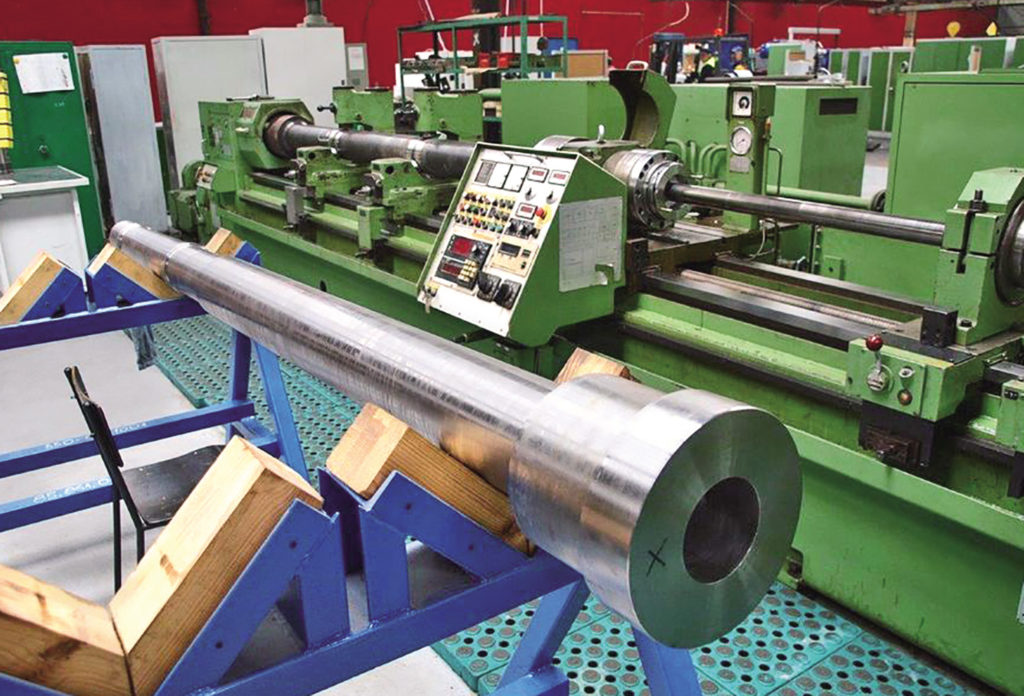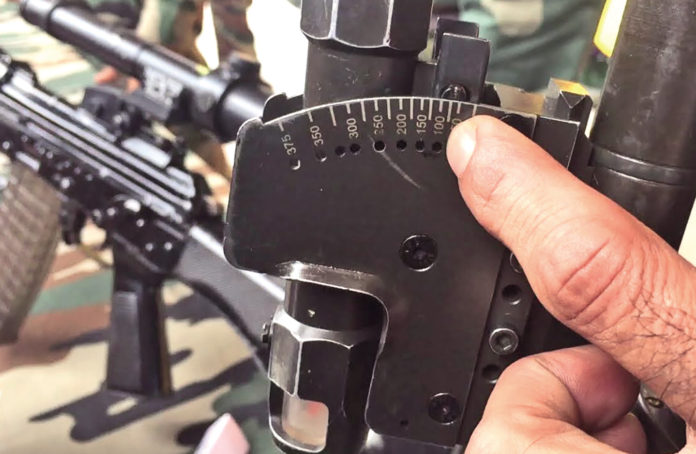As the Government looks to build a strong defence industrial base with the aim of achieving self-reliance along with targeting the export market, it is imperative to ensure that a strong quality assurance framework exists, both internally with manufacturers and externally, having an external body conduct quality control audits. Herein lies the importance of the Directorate General of Quality Assurance (DGQA), under Department of Defence Production (DDP), Ministry of Defence (MoD), which is responsible for quality assurance of the entire range of arms, ammunition, stores and equipment supplied to the Armed Forces. The agency has twelve directorates which cater to different platforms and weapon systems that require quality assurance.
Apart from QA activities, the organisation is responsible for import substitution and associates itself with Defence Research and Development Organisation (DRDO) for its development projects. In order to carry out its functions efficiently and effectively, the organisation is divided into twelve Directorates including ten technical directorates and two non-technical directorates. Each technical directorate is responsible for a group of technologically distinct equipment, namely: Stores, Armaments, Vehicle, Electronics, WP (Engineering and Hull Machinery, etc), Naval, Engineering equipment, Radar and System, Combat Vehicles, Metallurgical and explosive stores.
Today, there is huge emphasis on empowering startups, encouraging MSME participation and promoting private sector participation for defence manufacturing in India. DGQA is incentivizing domestic defence manufacturing through a number of schemes and policies including:
• IP Facilitation Scheme
• Self-Certification Scheme
• Defence Export Promotion Scheme
• Green Channel Policy.
Two schemes of DGQA coming up in the near future are Defence Testing Infrastructure Scheme (DTIS) and Third-Party Inspection Scheme (TPIS).
IP Facilitation Scheme
To enhance Industrial competitiveness Intellectual property rights (IPR) are evolving as strategic tools. In all spheres of business. Intellectual property (IP) refers to notions or ideas pertaining to intellect. IPRs include patents, copyright, Industrial design rights, trademarks, trade dress, and others. IPR plays a very important role in nearly every segment and has become a central feature for decisions pertaining to investment for many establishments. In defence manufacturing, IPR comprises innovations (patent protected), manufacturing designs and origins of technology. It affords protection for investments in developing new technology and ways to finance research and development events. The purpose of IPR is to protect investments in the expansion of new technology, thus giving boost and resources to activities related to finance research and development.
A number of ordnance factories, defence PSUs and even individual officials of these organizations have carried out innovative research leading to the development of certain materials, component/sub-assemblies/ assemblies for performance upgrade of the existing systems/ platforms. Simultaneously, they have reduced India’s dependence on imports. Such innovations may be treated as intellectual properties and need to be protected by way of filing of patents. Some organizations and individuals have made their own isolated efforts. There is a need for a structured mechanism to facilitate and encourage such activities with a primary objective to “Boost IP culture.” This would emphasize the importance of intellectual capital and encourage in-houseR&D in such organizations.
Mission Raksha Gyan Shakti was started in 2018 and it is aimed at inculcating IP culture in Indian defence manufacturing ecosystem. In this mission, an Intellectual Property Facilitation Cell (IPFC) has been constituted under the sponsorship of DGQA.


The Cell trains people from public/ private sector on IPR and enables filing of new IPR applications. The Action Plan 2019-20 aims to establish a structure which allows full deployment of novel ideas and innovation for achieving self-dependence in the defence sector.
A Memorandum of Understanding (MoU) has been signed between the IPFC and National Research Development Corporation (NRDC), Ministry of Science and Technology to promote a culture of novelty and IPR in the defence industry.
Self-Certification Scheme
The MoD has formulated the “Self-Certification Scheme” for DPSUs and private industry to allow ease of business with the aim of “Make in India”. DPSUs and industry are encouraged to take responsibility of quality standards and improve and maintain quality of [heir products via this scheme.
Until now, DGQA issued quality assurance (QA) to vendors. With the introduction of this scheme, a mechanism has been created for awarding “self-certification status” to vendors who have state-of-the-art manufacturing infrastructure and demonstrated capability to consistently fulfil the stipulated requirements. The scheme provides eligibility criteria for grant of self-certification status, assessment, validity, revocation/ renewal of the status and acceptance of self-certified stores. It provides requirements, criteria and assessment procedure for self-certification, its validity and withdrawal, and executive instructions for acceptance of stores under the scheme.
This status is honoured by all procurement agencies under MoD. The objective is to integrate quality throughout the manufacturing process and, hence, ensure better reliability of the end product.
The vendor’s processes should be stable with process capability index (Cpk) greater than 1.33. DPSUs and private industry should have an established quality management system (QMS) in place as per the requirements of ISO 9001:2015 and its revisions. The test labs of the of the vendors should have quality systems in conformity with ISO/ IEC 17025 and preferably be NABL accredited. The self-certification status is valid for three years.
Defence Export Promotion Scheme
The draft Defence Production Policy 2018 has set an objective lo enhance annual defence exports to Rs 35,000 crores by 2025 from the current level ofRs 6,000 crores annually. After the opening of liberalization of the defence sector in 2001, there has been a significant rise in the defence production by private sector enterprises. However, the increase in number of has not grown on the same scale.
The Defence Export Promotion Scheme has been launched with an objective to provide two options to prospective defence exports for improving marketability of their products globally.
Option 1. The first option is to get a certificate “Fit For Indian Military Use” if the vendor is found to be technically qualified bidder in a procurement situation. Where more than one vendor is technically qualified, the scheme proposes to create mechanism to grant relevant certification to the technically qualified bidder for their respective products and the associated specifications. A certificate would be issued by the Department of Defence saying “Fit for Indian Military Use”. This certificate can be produced by the prospective exporter for marketing their products in the global market. The request can be made to the DGQA, DGAQA or DGNAI.
Option 2. A second option is applicable in case a product is not required by the Indian armed forces while an Indian manufacturer has the capability to develop an item with export potential. The scheme would provide access to testing infrastructure of the MoD for initial product validation and subsequent field trials, under certain conditions.
The notified field firing ranges open to private industry for sharing are given in the table. The cost of testing and evaluation would be arrived at on a ‘case to case’ basis and would be borne by the exporter/ manufacturer.
Green Channel Policy
An important area of defence procurement is that of procurement of spares and stores. While this area is usually not covered as extensively as compared to big-ticket capital acquisitions, it is a key requirement for armed forces and defence procurement. The ‘Green Channel Policy’ is an MoD initiative that is being executed DGQA, with the purpose of improving ease of doing business. It is aimed to help achieve the vision of ‘Make in India’ within the sector of defence manufacturing.
The scheme is designed to cater to companies that manufacture defence items that have continuous requirement or mass consumption. These are primarily termed as defence stores and spares. Firms that meet the eligibility criteria may apply for this for permission to obtain ‘Green Channel Status’. Upon obtaining the ‘Green Channel Status’ through the granting of a ‘Green Channel Certificate’ the supplier gains deemed registration status, waiver of pre-dispatch inspection and acceptance of stores under the supplier’s guarantee/ warranty against the contracts concluded by different agencies under the MoD.
Firms that fulfil the eligibility criteria will be allowed to self-certify products meant for mass consumption of the Indian armed forces. Having said that, there is an exception with regards to ‘critical stores’ such as those that are meant to serve airborne applications, which are governed by airworthiness certification and quality assurance regulatory requirements. These stores being critical in nature along with more rigorous quality assurance procedures and practices are excluded from the provisions of self-certification.
The applicant firms need to pay a registration fee and deposit an irrevocable bank guarantee with the nodal agency – DGQA.
Upcoming Schemes of DGQA
Defence Testing Infrastructure Scheme
The development of a manufacturing base in the country is a top priority for the government, especially in the aerospace and defence sector. A critical focus area to further develop the defence industrial base is defence testing infrastructure. Domestic defence production would be well supported by an easily accessible state of the art testing infrastructure. However, this is another capital-intensive segment and would require continuous upgradations and modifications to be in sync with changing technologies and requirements. Hence, it is not an economically viable investment for individuals, particularly smaller defence industrial units to set up facilities in-house. This is where the Government can step in to provide the thrust that is required to set up the requisite testing infrastructure.
The Government has released a draft scheme aimed at setting up greenfield defence testing infrastructure for aerospace and defence related production. The facility would be a common facility under the private sector with government assistance. A major objective of the scheme is to encourage MSMEs and start-ups participation as the infrastructure, once set up, would provide easy and feasible access to the domestic defence industry. Given the fact that the very nature of setting up Defence Industrial Corridors (DICs) is to support large number of industries in the sector, the scheme provisions for giving a preference to DICs for setting upDTIs.
The private sector is expected to set up testing and infrastructure facilities with financial assistance from the central government in the form of grant-in-aid for setting up these DTIs. The segments for which DTIs can be set up include
• Testing facilities for drones/ UAVs/ RPAs
• EMI / EMC testing for radars and electronic/ telecom equipment
• Specialised test-driving tracks
• Ship motion testing
• Radiated noise and shock testing
• Ballistic and blast testing facilities
• Electronic warfare
• Environment test facilities
• Rubber testing for defence and aerospace sectors
• Test facilities for aerospace industry
• Software testing
• Any other area lacking testing infrastructure
Each DTI will be set up via a Special Purpose Vehicle (SPV), a Section 8 company under the Companies Act 2013, which would he the Implementation Agency (IA) comprising private entities including private companies, industry associations, and R&D institutions. The grant in aid from the central government would be limited to a sum total of Rs 400cr while the assistance for individual DTIs would not exceed 75 per cent of the project cost. The grant broadly covers 3 small, 3 medium and 2 large facilities with estimated costs at less than Rs 20crore, between Rs 20 and 50crore and greater than Rs 50crore respectively. The number at facilities under each category could however be altered if need arises.
At least seven private entities could constitute the IA but eachsuch constituent should not have more than 25 per centof totalshare capital of the IA. There are other conditions to be fulfilled as well. The roles and responsibilities of IAs have also been spelt out.
This scheme is expected to support start-ups and MSMEs, which will then bridge gaps in defence testing infrastructure In the country. The government expects these new facilities, once established, to resolve three critical bottleneck in defence production. A few large private companies in India have reportedly spent huge amounts to create their own laboratoriesto validate their manufactured products. However, not all firms/ companies can afford this given the fact that there are only few assured orders. These facilities would, therefore, remove this bottleneck, thereby increasing work on the research and development front.
Third Party Inspection Scheme
Third Party Inspection (TPI) scheme for outsourcing quality assurance functions for defence stores has been formulated covering modalities for outsourcing TPI agencies to perform quality assurance functions for defence stores manufactured by the private industry within India.
For an entity to be eligible to become a TPI agency, it should satisfy below criteria:
• Accreditation by the quality council of India (QCi) for certification / conformity assessment pertaining to quality management system (QMS) of manufacturers (1509001:2015).
• Accreditation for certification of “Conformity Assessment – Requirements for the Various Types of Bodies Performing Inspection as per IS/ISO/IEC 17020: 2012.
• Accreditation by OCI for ZED Maturity Assessment Model, initially provisionally approved and later formally accredited by NABCB and approved by DCMSME (for MSMEs)(in cases involving capacity assessment and certification task outsourced to TPI).
Indian agencies which meet the above eligibility criteria and are interested in registration as TPI for the purpose of this scheme may apply to DGQA for which the format and the procedure has been laid down.
Comments
The different schemes of DGQA target key aspects to build a robust defence industrial base along with creating a more conducive and efficient defence manufacturing ecosystem. Certain schemes are also designed to better integrate MSMEs into the defence manufacturing ecosystem and help reduce barriers to entry into the defence sector. All in all, the ecosystem is being so developed that there comes a higher degree of participation and responsibility on the part of the supply chain to execute orders in an effective and transparent manner.
Quality assurance is vital to guarantee that qualitative requirements, technical specifications, and any other applicable guidelines and / or characteristics of an equipment are met. Given the focus on indigenous defence manufacturing, it is important to have a strong quality assurance framework to ensure that the domestic defence industrial base can produce the highest quality of defence equipment.
These schemes encourage holistic defence production and a testing ecosystem such as in the upcoming defence industrial corridors in Uttar Pradesh, Tamil Nadu and in hubs like Bangalore, Hyderabad, Chennai and Pune.
===============
Quality Assurance and MSMEs
With reportedly more than 10,000 MSMEs contributing to the defence sector In India, it is Imperative that policies for testing and quality assurance are prepared with this segment in rnind. Not only are MSMEs a big community In the defencesector, they cannot afford to have individual affiliations and individual testing centres, thereby making their involvement more important. Hence, policies should be devised to enable MSMEs to get their products tested and certified without having lo make significant capital investments. While the Government is presently drafting an MSME-focused schemeIpolicy for the defence sector, there are others in draft for the manufacturing sector. They include:
Draft Defence Testing Infrastructure Scheme (DTIS). The policy aims to set up 6-8common greenfield defence testing infrastructure facilities under the private sector with Government assistance (up to 75% of project cost as grant-in-aid). The objective of the proposed scheme is to promote indigenous defence production, with special focus on participation of MSMEs and Startups by bridging gaps in defence testing infrastructure in the country.
Financial Support to MSMEs in ZED CertificationScheme. The objectives of the scheme include inculcating zero defect and zero effect practices in the manufacturing process while ensuring continuous improvement. The scheme promotes adaption of quality tools/ systems and energy efficient manufacturingand encourages MSMEs to constantly upgrade their quality standards to adopt zero defect manufacturing processes. The subsidy provided by the government would be within 80%, 60% and 50% for micro, small and medium enterprises respectively.
Lean Manufacturing Competitiveness Scheme: This is a business initiative to enhance competitiveness in the manufacturing sector, thereby imbibing a culture of continuous improvement and increase in overall productivity. The provision of financial assistance to MSMEs is up to Rs 36 lakhs per mini cluster of 10 units for a period of 18 months or till completion, in an 80:20 ratio, where the MSME’s contribution is 20%.
Tool Rooms and MSME Technology Centres. Technology centres facilitate an integrated development of MSMEs by providing quality tools and industry ready manpower along with consultancy in tooling and related areas and processes. Assistance to MSMEs is provided through tooling facilities for enhancement of their efficiency and through consultancy on process and product development and skill development.
================
Notified Field Firing Ranges of Indian Army For Private Industry
S. No. FFR State Maximum Weapons to be tested
Range (KM)
1 Bamori (Saugor) Madhya Pradesh 3 Small Arms (SA) weapons 81 mm mortar,
Rocket Launcher (RL), Automatic Grenade
Launcher (AGL) and 14.5 mm Artillery Trainer
2 Sikkim (HAA Area) Sikkim 6 All infantry weapons and field guns at limited range
3 Teesta West Bengal 10 All infantry weapons and field guns at limited range
4 Balwanta (Nasirabad) Rajasthan 3 SA weapons 81 mm mortar RL, AGL and 14.5 mm
Artillery Trainer
5 Gamrala (HAA Area) Arunachal Pradesh 6 All infantry weapons and field guns at limited range
6 Mahajan Rajasthan 20 Tank and Infantry Combat Vehicle (ICV) Gun, Tank
and ICV Missiles. All Infantry, Army Air Defence
(AAD) and Artillery weapons
8 Pokhran Rajasthan 32 Tank and ICV Gun, Tank and ICV Missiles, All
Infantry, AAD and Artillery weapons
9 Babina Madhya Pradesh 10 Tank and ICV Gun, Tank and ICV Missiles, All
infantry, AAD and Artillery weapons












